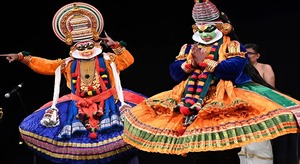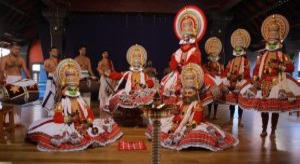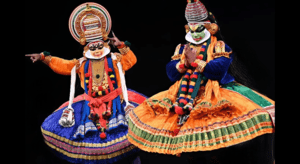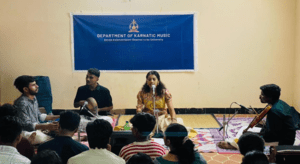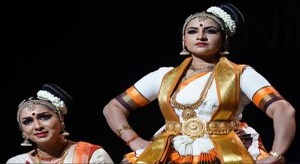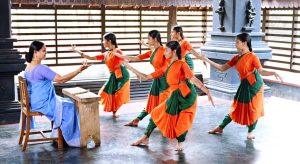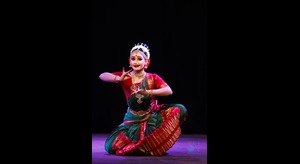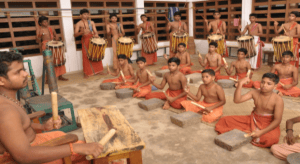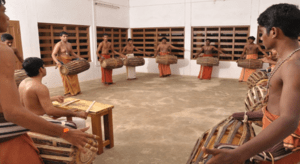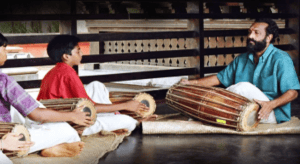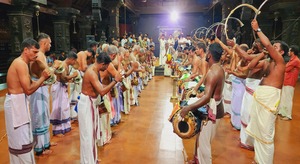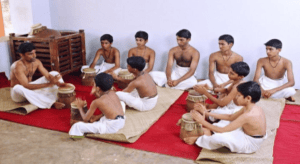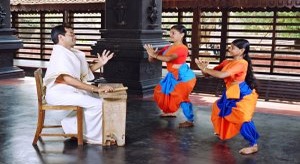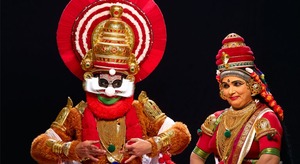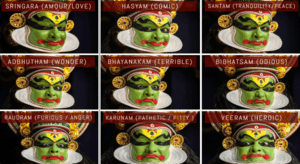Kerala Kalamandalam
Kerala Kalamandalam renowned for its meticulous training and performances, the institution offers instruction in various classical dance and theatre forms…
including Kathakali, Mohiniyattam, Kudiyattam, Thullal, Kuchipudi, Bharatanatyam, and NangiarKoothu. Additionally, it features training in the traditional orchestra Panchavadyam and Modern Theatre. The curriculum also includes Modern Indian languages, Aesthetics, and Indian Literature, reflecting the institution’s comprehensive approach to arts education. In 1930, the nationalist poet Vallathol Narayana Menon and Manakkulam Mukunda Raja envisioned the establishment of the first public institution for performing arts in Kerala, aiming to nurture and sustain traditional performance expressions through modern public patronage. This vision materialized as Kerala Kalamandalam, which was transformed into a deemed university in 2007.
Read MoreOur Vision
The Kerala Kalamandalam Deemed to be University for Art and Culture has for its abiding vision the preservation and maintenance of a sustainable model…
of Gurukula Sampradayam, the traditional system of learning and pedagogy in Indian performing arts, attuned to contemporary socio-cultural systems, student expectations and performance requirements. It aspires for the creation of versatile artists, capable of continuing with and enriching the traditions in all the disciplines of Kerala’s traditional performance forms. The institution also aims at fostering a vibrant culture of theoretical and practical research on the culture and performing arts of Kerala, in order to produce and further higher discourses of knowledge in these domains.
Read More


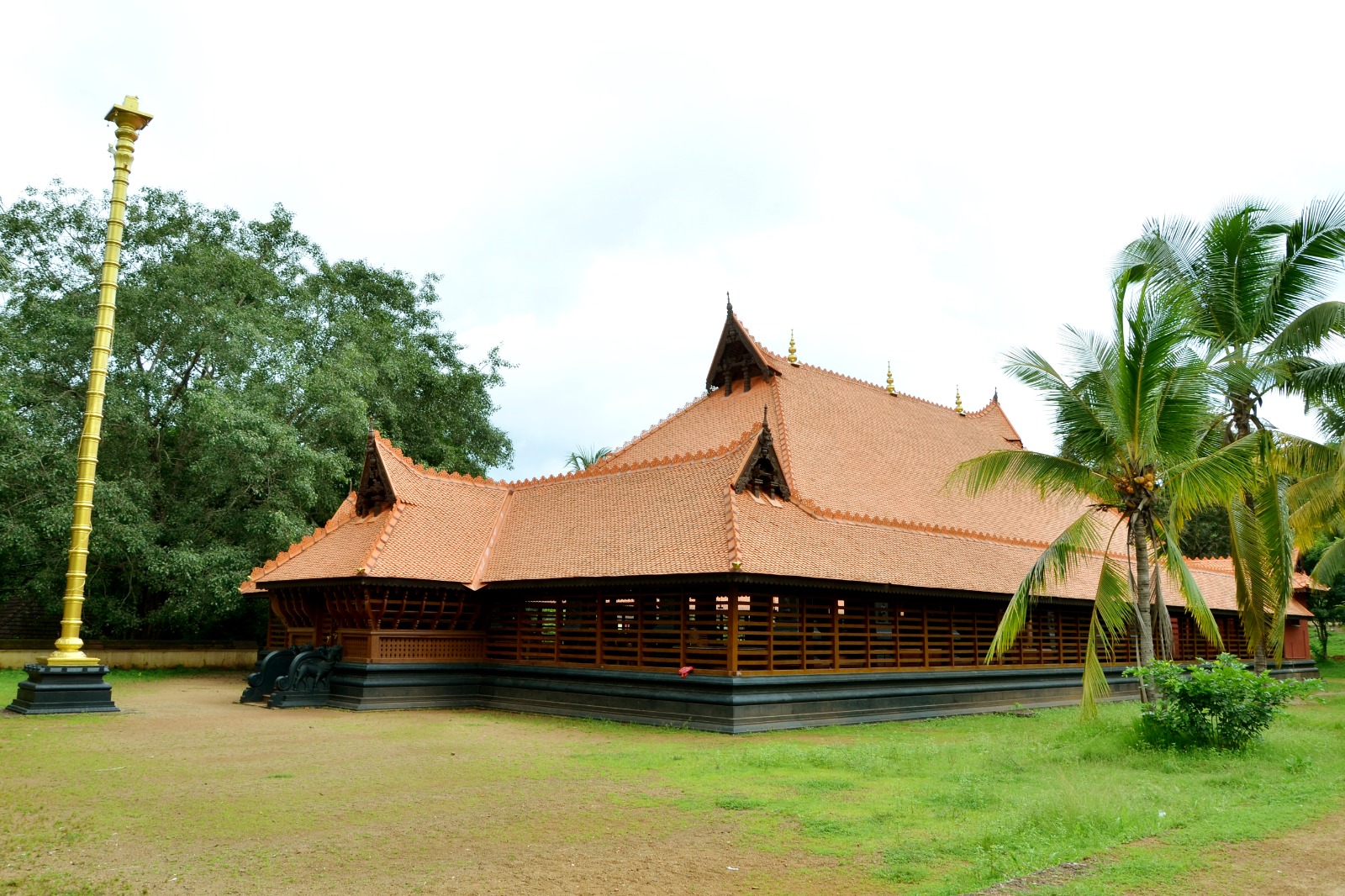





Guided Tour
It was in 2003 Kerala Kalamandalam launched a distinctive project famously known as ‘A Day with the Masters’ in association with Kerala Tourism. ‘A Day with the Masters’ is a pilgrimage to the most sacred temple of arts, with a unique menu of presentations that bring out the grandeur of the institution. … Yet there had been no specific project to guide the visitors within the vast Vallathol Nagar campus of Kalamandalam and the Nila campus for decades. The guides are the project coordinator or the trained senior art‑students who receive the visitor at the entrance of the huge Kalamandalam campus at Vallathol Nagar. Then he/she can visit the Koothambalam (the traditional temple theater meant for the make‑up, costuming and performance of art forms). Inside the Koothambalam, there are granite pillars on which are carved 108 karanas/dance‑poses taken from the Natya Shastra, the 2nd‑century treatise on Indian dramaturgy. Then the visitor can explore the kalaries/classrooms—spaces where students train in percussion and vocal music, such as chenda, maddalam, edakka, mridangam, mizhavu, thimila, Kathakali, Carnatic music and more.
Show MoreThe Beginning – Heritage, Tradition, and Legacy
Kerala Kalamandalam, renowned for its meticulous training and performances, offers instruction in various classical dance and theatre forms, including Kathakali, Mohiniyattam, Kudiyattam, Thullal, Kuchipudi, Bharatanatyam, and NangiarKoothu. Additionally, it features training in the traditional orchestra Panchavadyam and Modern Theatre. The curriculum also includes Modern Indian languages, Aesthetics, and Indian Literature, reflecting the institution’s comprehensive approach to arts education.Historical Significance: Founded by the renowned poet Padmabhoshan Vallathol Narayana Menon, Kerala Kalamandalam is dedicated to preserving and promoting the ancient artistic heritage of Kerala. During the twilight of the 19th century, Kerala’s traditional performing arts teetered on the edge of oblivion. In a historic move, Padmabhooshan Vallathol Narayana Menon, a revered nationalist poet and fervent patron of the arts, embarked on a monumental endeavor: the creation of an institution dedicated to preserving Kerala’s rich artistic heritage. Thus, Kerala Kalamandalam was born. … Historical Significance: Founded by the renowned poet Vallathol Narayana Menon, Kerala Kalamandalam is dedicated to preserving and promoting the ancient artistic heritage of Kerala. During the twilight of the 19th century…
Learn More about Heritage & Legacy

The Art that Embodies Heritage and Nurtures Society
Art is deeply intertwined with the region’s rich cultural heritage, serving as a vibrant expression of its history, traditions, and identity.Kerala boasts a rich tradition of classical art-forms. Art embodies heritage in Kerala Kalamandalam through its preservation and perpetuation of classical art forms, such as Kathakali, Mohiniyattam, Kutiyattam, and Thullal. These highly stylized performance arts, with their elaborate costumes, intricate makeup, and expressive gestures, have been preserved. Kerala Kalamandalam stands as a custodian of the artistic heritage, preserving and perpetuating classical art-forms. They serve as repositories of ancient myths, religious stories, and cultural practices, embodying the essence of the artistic heritage, encapsulating centuries-old traditions, mythologies, and rituals. Through rigorous training, research, and performance, Kalamandalam safeguards and celebrates the heritage, ensuring its transmission to future generations. Within the walls of Kerala Kalamandalam, these traditions are not merely taught but lived, breathed, and passed down through generations of dedicated artist-practitioners.
The Art that Embodies Heritage and Nurtures Society
THE ART THAT EMBODIES HERITAGE AND NURTURES SOCIETY Kerala Kalamandalam epitomizes the interconnectedness of heritage, art, and society. As a venerable institution, it embodies the cultural legacy, fosters artistic excellence, and fosters social cohesion, ensuring that Kerala’s classical arts continue to thrive as vibrant expressions of its rich cultural heritage. Art flourishes within the halls of Kerala Kalamandalam, where aspiring artist-students immerse themselves in the intricacies of classical art-forms under the guidance of master practitioners. Through disciplined practice, students hone their skills in music, dance, drama, and other artistic disciplines, breathing life into the cultural legacy. Kalamandalam serves as a crucible of artistic innovation, where tradition intersects with contemporary sensibilities, fostering creativity and experimentation while upholding the authenticity of Kerala’s classical arts. Kerala Kalamandalam plays a pivotal role in shaping the society by nurturing a community of artists, scholars, and patrons dedicated to the preservation and promotion of classical arts. Its graduates contribute to the cultural landscape as performers, teachers, researchers, and cultural ambassadors, enriching society with their artistic talents and insights. Moreover, Kalamandalam serves as a cultural hub that fosters social cohesion and pride, bringing people together to celebrate artistic heritage and collective identity. Thus, Kalamandalam serves as a cornerstone of cultural heritage, encompassing diverse forms of expression that reflect the region’s rich tapestry of culture, history, and creativity. By preserving, promoting, and celebrating the artistic heritage, Kerala Kalamandalam honors the past, enriches the present, and inspires future generations to cherish and perpetuate the legacy of their ancestors.

Experience the Rich Cultural Heritage of Kerala
Join us in preserving and celebrating the traditional art forms that have shaped Kerala’s cultural identity for centuries..

 LATEST NEWS - അറിയിപ്പുകൾ
LATEST NEWS - അറിയിപ്പുകൾ
